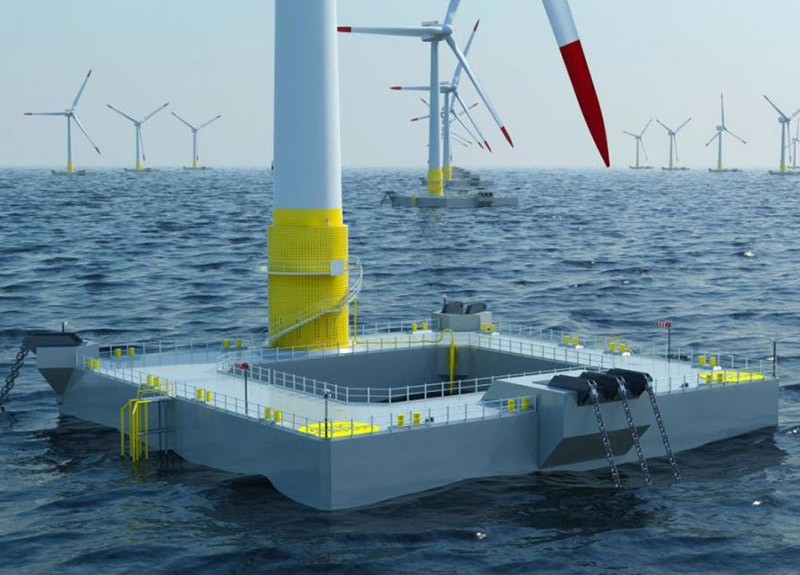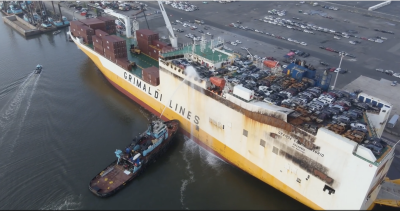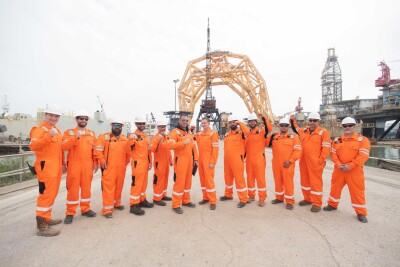(Bloomberg) — Plans to install turbines on platforms that float in the sea are gathering pace as renewable energy developers seek new areas to harvest wind power.
Scotland has granted planning permission for as much as 92 megawatts of floating offshore wind capacity, including two separate projects in the past two weeks. In Ireland, the developer Gaelectric Holdings Plc and Ideol SAS, a French floating wind company, agreed on Friday to develop floating wind projects in Irish waters, starting with a 30-megawatt array.
The deals bring to about 237 megawatts the capacity of floating offshore wind projects that will be installed worldwide by 2020, according to Bloomberg New Energy Finance. That’s just a fraction of the 38,000 megawatts of turbine due to be fixed to the seabed by the end of this decade.
“Floating wind has the potential to bring clean energy to island nations that might not have much land and the seabed is too deep for normal offshore wind,” said Tom Harries, Bloomberg New Energy Finance.
The nascent technology is seen as key to cutting the costs of offshore wind power and opening up swathes of seabed that would otherwise be undeveloped because of poor seabed conditions or because it’s too deep.
In Scotland, developers are rushing to meet a deadline to get the only subsidies available for floating offshore wind farms before they have to compete with other cheaper renewables. In order to get that support, floating projects must show they’re on track to produce first power by the end of September 2018.
The projects recently approved in Scotland both target deep waters that would otherwise require massive concrete or steel structures to anchor turbines.
Recent projects include:
Hexicon AB’s Dounreay Tri project off the coast of Inverness won approval on Friday. The Kincardine floating offshore wind farm off the coast of Aberdeenshire was approved on March 9. In Japan, Toda Corp., a general contractor based in Tokyo, said in December that it would build a floating wind farm of with as much as 21 megawatts of capacity off the coast of Nagasaki. Statoil ASA and Masdar Abu Dhabi Future Energy Co. expect to commission the Hywind project later this year about 25 kilometers (15 miles) off the coast of Peterhead, Aberdeenshire. Its five turbines will each have 6 megawatts of capacity.
Bloomberg News by Jessica Shankleman




.png.small.400x400.png)
